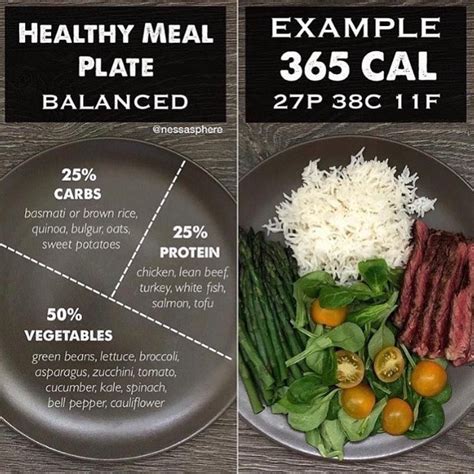Understanding the Male Energy Rollercoaster
Many men experience an all-too-familiar mid-afternoon slump, a sudden drop in concentration, or a general feeling of exhaustion that derails productivity and enjoyment. These ‘energy crashes’ aren’t just a sign of being tired; they often point to inefficiencies in how your body is fueled. For men, optimizing energy isn’t just about feeling good; it impacts everything from mental acuity and physical performance to mood and hormonal balance. The good news is that with strategic dietary choices, you can smooth out those energy peaks and valleys, ensuring a steady supply of fuel for your body and mind.

The Foundation: Balanced Macronutrient Intake
The cornerstone of stable energy lies in the balance of carbohydrates, proteins, and fats. Each plays a distinct role in providing and sustaining energy.
- Complex Carbohydrates: Your Steady Fuel Source
Forget the myth that all carbs are bad. Complex carbohydrates like whole grains (oats, brown rice, quinoa), legumes, and starchy vegetables (sweet potatoes) are digested slowly, providing a gradual release of glucose into your bloodstream. This prevents the sharp spikes and subsequent crashes associated with refined sugars and simple carbs. Aim for a consistent intake of these throughout your day.
- Lean Proteins: For Satiety and Muscle Support
Protein is vital for satiety and helps slow down the absorption of carbohydrates, further stabilizing blood sugar. Incorporate lean protein sources such as chicken breast, fish, eggs, Greek yogurt, and plant-based options like tofu and lentils into every meal. This helps maintain muscle mass, which is crucial for a healthy metabolism and energy production.
- Healthy Fats: Long-Lasting Energy and Hormonal Health
Healthy fats provide a concentrated source of energy and are essential for hormone production and nutrient absorption. Avocados, nuts, seeds, olive oil, and fatty fish (like salmon) are excellent choices. They contribute to a feeling of fullness and offer sustained energy without the blood sugar fluctuations.

The Micronutrient Power-Up
Beyond macronutrients, a host of vitamins and minerals play critical roles in your body’s energy production pathways. Deficiencies can manifest as chronic fatigue.
- B Vitamins: The Energy Catalysts
B vitamins (B1, B2, B3, B5, B6, B7, B9, B12) are crucial for converting food into energy. Found in whole grains, meat, eggs, dairy, leafy greens, and legumes, ensuring adequate intake is paramount.
- Iron: Oxygen Transport
Iron is essential for transporting oxygen throughout the body. Low iron levels can lead to fatigue and weakness. Red meat, spinach, lentils, and fortified cereals are good sources. Men generally have lower iron deficiency risks than women, but it’s still worth monitoring.
- Magnesium: Muscle and Nerve Function
Magnesium is involved in over 300 biochemical reactions in the body, including energy production. Nuts, seeds, leafy green vegetables, and dark chocolate are rich in magnesium.
- Vitamin D: Beyond Bone Health
Emerging research links Vitamin D deficiency to fatigue. Sunlight exposure is a primary source, along with fatty fish and fortified foods.

Strategic Meal Timing and Frequency
When you eat is almost as important as what you eat. Irregular meal patterns can wreak havoc on blood sugar and energy levels.
- Don’t Skip Breakfast: Fuel Your Morning
A balanced breakfast sets the tone for your day, replenishing glucose stores after the overnight fast. Opt for a mix of complex carbs, protein, and healthy fats.
- Eat Regularly: Prevent Extreme Hunger
Aim for 3 balanced meals and 1-2 small, healthy snacks throughout the day. This keeps blood sugar stable and prevents you from becoming overly hungry, which can lead to poor food choices and overeating.
- Mindful Snacking: Smart Choices Matter
Choose snacks that combine protein or healthy fats with fiber, such as an apple with almond butter, Greek yogurt with berries, or a handful of nuts. Avoid sugary snacks that provide a fleeting energy boost.
Hydration: The Unsung Hero of Energy
Dehydration, even mild, can significantly impact energy levels, mood, and cognitive function. Water is essential for every bodily process, including nutrient transport and waste removal.
- Drink Plenty of Water
Make water your primary beverage. Keep a water bottle handy and sip throughout the day. Aim for at least 8-10 glasses (2-3 liters) daily, more if you’re active or in a hot climate.
- Limit Sugary Drinks and Excessive Caffeine
While coffee can provide a temporary lift, excessive intake or reliance on sugary energy drinks can lead to jitters, crashes, and disrupted sleep patterns, ultimately depleting your energy reserves.

Eliminating Energy Zappers
Just as important as what you put into your body is what you avoid.
- Processed Foods and Added Sugars
These offer ’empty calories’ that provide little nutritional value and often lead to rapid blood sugar spikes and crashes. Read labels and choose whole, unprocessed foods as much as possible.
- Alcohol
While not a food, alcohol can severely impact sleep quality and nutrient absorption, leading to next-day fatigue. Moderate your intake, especially close to bedtime.

Conclusion: Sustained Energy is Within Reach
Preventing male energy crashes isn’t about restrictive diets; it’s about making smart, sustainable choices that consistently fuel your body. By focusing on a balanced intake of complex carbohydrates, lean proteins, and healthy fats, ensuring adequate micronutrient consumption, adopting strategic meal timing, and prioritizing hydration, you can unlock a new level of sustained energy and vitality. Implement these strategies consistently, and you’ll soon experience the profound difference they make in your daily performance and overall well-being.




